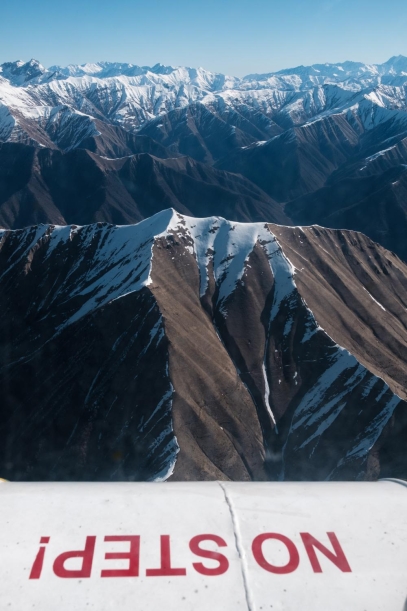

The view from a Border Police Helicopter over the Greater Caucasus mountains in Georgia during a routine flight to rotate a border police contingent at an outpost in the remote montane region of Tusheti. The road through the pass, the highest in the Caucasus at an elevation of 2850m, is impassable for seven months of the year, during which time such infrequent helicopter flights provide Tusheti's only link to the outside world. Flights are heavily weather dependent, as the pass cannot be flown in poor visibility.
2023 ZEKE Award: Honorable Mention
Connecting the Caucasus
Photographer: Nyani Quarmyne
2023 ZEKE Award: Honorable Mention
Exhibit Title: Connecting the Caucasus
Location: Georgia
Tusheti, draped across the Caucasus Mountains in Georgia, is all but cut off for most of the year—the only road in, through the treacherous Abano Pass, is impassable in winter. An occasional Border Police helicopter becomes the only link with the outside world.
The region is the ancestral home of the Tush, traditionally nomadic shepherds. Today, due largely to Soviet era resettlement policies, most live in the lowlands; few brave winter in the mountains.
But when the Abano Pass opens in spring, Tush flood into the highlands, shepherds among them making a ten-day trek with their flocks. There is a sense that for most Tush, the mountains are their real home.
Tourism has become the economic mainstay: seasonal guesthouses cater to summer hikers. But they are constrained by the very remoteness that is their main attraction.
Aiming to boost tourism by getting businesses online, a group of volunteers set out to bring the Internet to the mountains. They hope increased economic opportunity will slow the drift of young people to cities, and make it possible for the Tush to once again live year-round in the mountains.
Make Comment/View Comments